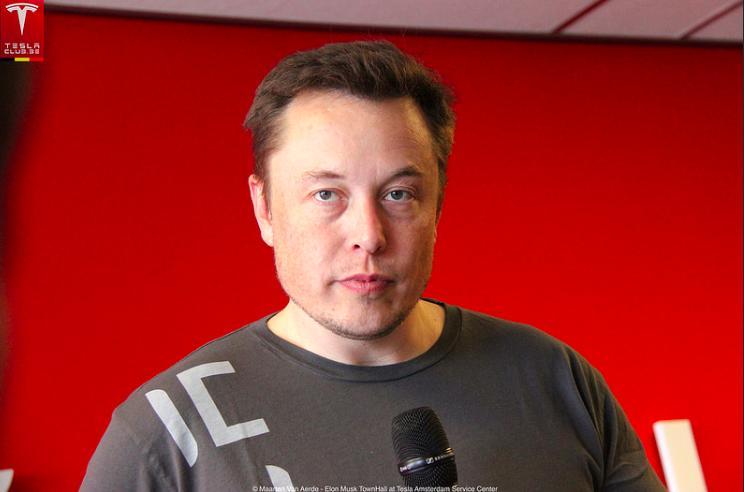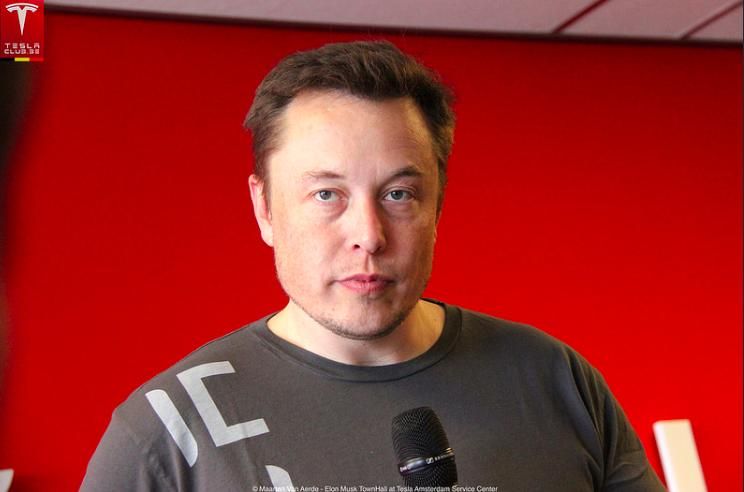
Tesla Sues Oil Exec for Impersonating Elon Musk in ‘Deplorable and Unlawful’ Email

Could Elon Musk be right about the sneaky tactics deployed by Big Oil and Gas? Tesla Motors is suing a senior executive of an oil pipeline services company for impersonating the Tesla CEO in an email.
The electric car company believes that the oil exec’s email was an industry tactic to undermine Tesla’s push for sustainable transportation.Flickr
Bloomberg and Forbes report that Todd Katz, the chief financial officer of Seattle-based Quest Integrity Group, allegedly pretended to be Musk in an email.
The lawsuit, filed Wednesday in Santa Clara County Superior Court, claims that Katz used the email address “elontesla@yahoo.com” to send a message to Tesla Chief Financial Officer Jason Wheeler on Aug. 3—just after Tesla reported its second-quarter financial results.
The alleged email states:
why you so cautious w Q3/4 gm guidance on call? also what are your thoughts on disclosing M3 res#? Pros/cons from ir pov? what is your best guess as to where we actually come in on q3/4 deliverables. honest guess? no bs. thx 4 hard work prepping 4 today
em
Katz’s bio on the company’s website states that he previously worked for several top Wall Street investment banks, including Morgan Stanley and Merrill Lynch.
The complaint claims that Katz was “impersonating Musk in an attempt to unlawfully obtain material, non-public information—including Tesla’s financial trade secrets—from Tesla’s CFO through fraud, artifice and deception.” Fortunately, Wheeler did not disclose any information.
“On information and belief, Katz, Quest Integrity, and/or their oil company clients intended to use that non-public and trade secret information to further their own agendas and to harm Tesla,” the lawsuit reads.
Quest Integrity Group’s roster of big-name clients include the likes of BP, Shell, Chevron, ExxonMobil and more.
According to Bloomberg, Tesla believes that the email was an oil industry tactic to undermine the electric carmaker’s push for sustainable transportation.
“In recent years, oil companies have spent billions of dollars on legislative efforts and campaigns aimed at blocking progress toward electric cars and other sustainable energy solutions in the United States and abroad,” Tesla said.
Elon Musk Unveils Tesla Model 3: Accelerating Sustainable Transport Is 'Important for the Future of the World' https://t.co/nTBlBqmKLE
— EcoWatch (@EcoWatch) April 4, 2016
Soon after receiving the email, Tesla launched an investigation to pinpoint the culprit behind the message. “Among other things, Tesla had to pay investigators and expend IT and other resources to identify the source of the message, investigate other potential impersonation attempts and efforts to gain access to the company’s servers, in order to ensure no disclosures of non-public information had been made,” the lawsuit states.
Tesla is seeking an unspecified amount to “recover damages it suffered as a result of Katz’s criminal misconduct and to enjoin Katz and his cohorts from engaging in such deplorable and unlawful activities going forward.”
“As a result of Katz’s impersonation of Musk, Tesla—a publicly traded company responsible for ensuring the integrity of its non-public financial information, trade secrets, and data—has incurred costs, damages, and losses,” the lawsuit states.
Tesla’s attorney John Hueston told Forbes that “the point of this action is that this was perceived as an effort to gain inside information, non-public information.”
“Although it was caught here, Tesla is worried about this happening in some other form,” Hueston added. “This could have resulted in highly valuable information being improperly disclosed.”
As Electrek noted, a few weeks following the email incident, Musk sent a memo to employees encouraging them to deliver as many vehicles as possible by the end of the quarter. The entrepreneur also said that Tesla was on “razor edge” of turning a profit and that he would like to “throw a pie in the face of all naysayers on Wall Street.”
Back in May, Musk accused the oil and gas industry of spreading “propaganda” in order to tarnish his companies, including Tesla, SolarCity and SpaceX.
“We need to appeal to the people–educate people to sort of revolt against this and to fight the propaganda of the fossil fuel industry which is unrelenting and enormous,” Musk said.
Elon Musk: We Must Revolt Against the Unrelenting Propaganda of the Fossil Fuel Industry https://t.co/eGrR4QXjtT @BusinessGreen @CSRwire
— EcoWatch (@EcoWatch) May 6, 2016

 233k
233k  41k
41k  Subscribe
Subscribe 
